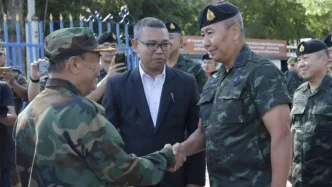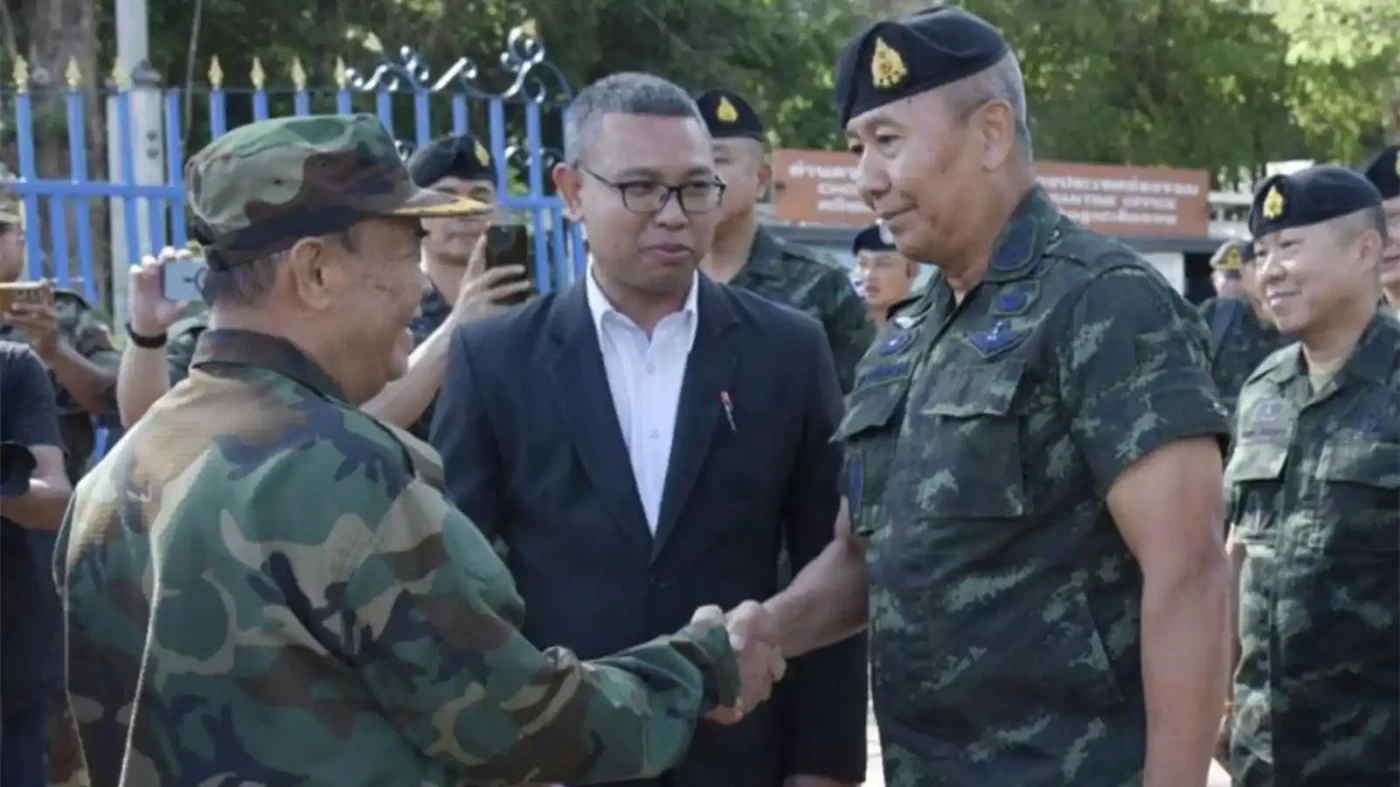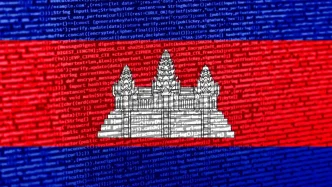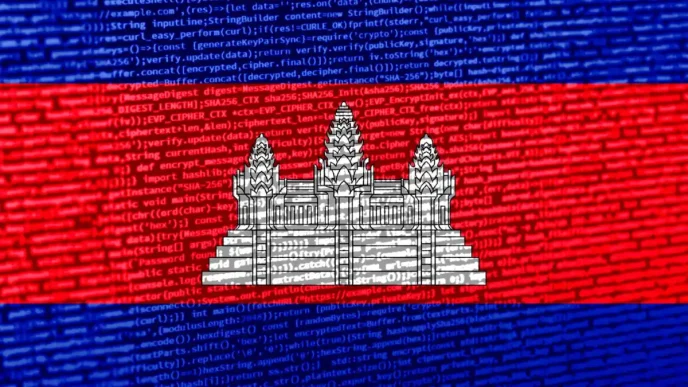In a significant step toward calming recent hostilities, the army chiefs of Thailand and Cambodia have agreed to withdraw troops from a disputed border area in Thailand’s Ubon Ratchathani province following a tense clash earlier this week. The decision, reached during a high-level meeting on May 29, 2025, at the Chong Chom border crossing in Surin province, aims to prevent further escalation and pave the way for diplomatic resolution through the Joint Border Committee (JBC).
Details of the Agreement
The meeting between General Pana Klaewplodthuk, Commander-in-Chief of the Royal Thai Army, and General Mao Sophan, Commander of the Royal Cambodian Army, marked a critical effort to address the violent encounter that occurred at 5:45 a.m. on May 28 in the Chong Bok area. According to Thai military officials, both sides have committed to pulling back their forces by at least 200 meters from the site of the clash, creating a buffer zone to reduce the risk of further confrontations.
Lieutenant General Boonsin Padklang, commander of Thailand’s 2nd Army Region, who also attended the talks, described the negotiations as smooth and productive. He emphasized that the mutual withdrawal is a temporary measure while awaiting further discussions through the JBC, a bilateral mechanism designed to address border disputes. The Thai Foreign Ministry is expected to convene a JBC meeting within the next two weeks to focus on demarcating the contested boundary and resolving discrepancies in territorial maps.
“There is now a clear understanding between the two sides” said Lieutenant General Boonsin, reassuring the public that commanders at all levels have communicated effectively to de-escalate the situation. He stressed that both Thai and Cambodian forces are committed to avoiding the use of weapons and preventing any actions that could reignite tensions.
Background of the Border Clash
The Chong Bok area, located in Thailand’s Ubon Ratchathani province near the Cambodian border, has long been a point of contention between the two nations due to overlapping territorial claims and historical disagreements over boundary lines. The clash on May 28, though details of casualties or injuries remain unclear, heightened fears of a broader military conflict in a region already sensitive to past disputes, such as the prolonged standoff over the Preah Vihear temple complex.
Thai and Cambodian forces have clashed sporadically in border areas over the years, often driven by differing interpretations of colonial-era maps drawn by French authorities during the early 20th century. These discrepancies have fueled nationalist sentiments on both sides, complicating efforts to reach a permanent resolution. The Chong Bok incident is the latest in a series of skirmishes that underscore the urgent need for clear demarcation and sustained dialogue.
During Thursday’s meeting, which lasted just over an hour, journalists were barred from the discussion room, reflecting the sensitivity of the talks. However, the outcome suggests a shared recognition of the economic and human costs of prolonged conflict, particularly for communities living near the border who rely on cross-border trade and movement.
Broader Implications for Thai-Cambodian Relations
The agreement to withdraw troops and engage the JBC signals a willingness from both Bangkok and Phnom Penh to prioritize diplomacy over military posturing. This development is particularly significant given the historical context of Thai-Cambodian border disputes, which have at times strained bilateral relations and drawn international attention. Analysts suggest that the current de-escalation could serve as a model for addressing other contested areas along the 800-kilometer border shared by the two countries.
One such area, Prasat Ta Muen Thom in Surin province, was also discussed during the meeting. Lieutenant General Boonsin confirmed that there is no active dispute over the site, which remains under Thai control, and authorities are working to ensure that tourism continues without incident. He noted that measures are in place to prevent the display of inappropriate symbols or behaviors that could inflame tensions, a subtle reference to past incidents where nationalist displays have exacerbated border disagreements.
Beyond the immediate military context, the Chong Bok clash and subsequent talks highlight the broader geopolitical dynamics at play in Southeast Asia. Thailand and Cambodia, both members of the Association of Southeast Asian Nations (ASEAN), are under pressure to maintain regional stability amid competing influences from major powers like China and the United States. A prolonged border conflict could undermine ASEAN’s cohesion and provide an opening for external actors to exert greater influence in the region.
Public and Economic Concerns
For residents on both sides of the border, the specter of violence looms large, threatening livelihoods that depend on cross-border trade and tourism. Markets in Surin and Ubon Ratchathani provinces often serve as economic lifelines for Cambodian workers and traders, while Thai businesses benefit from the flow of goods and visitors. Any escalation could disrupt these vital connections, with ripple effects felt far beyond the immediate clash site.
Lieutenant General Boonsin addressed these fears directly, urging citizens to remain calm and confident in the commitment to peace. “Such conflict would only bring harm to people on both sides and cause economic damage” he said, emphasizing that both militaries are determined to avoid the use of force. His remarks reflect a broader understanding that the costs of conflict far outweigh any potential gains from territorial assertions.
Media outlets in Thailand and Cambodia have also been urged to exercise caution in their coverage of the border situation, a reminder of the role that sensationalist reporting can play in inflaming public sentiment. Responsible journalism, coupled with transparent communication from military and government officials, will be crucial in maintaining calm as the JBC prepares to take up the issue.
Challenges Ahead for the Joint Border Committee
While the agreement to withdraw troops is a positive first step, the upcoming JBC meeting faces significant challenges. Demarcating the border in the Chong Bok area will require reconciling historical maps with modern surveying techniques, a process that has proven contentious in the past. Both sides will need to demonstrate flexibility and a commitment to compromise if they are to achieve a lasting resolution.
Moreover, the JBC’s work must be supported by political will at the highest levels of government. Domestic pressures, including nationalist rhetoric and public expectations, could complicate negotiations, particularly if either side perceives concessions as a sign of weakness. The involvement of the Thai Foreign Ministry suggests that Bangkok is approaching the issue with a degree of seriousness, but sustained engagement from Phnom Penh will be equally critical.
International observers, including ASEAN partners, may also play a role in facilitating dialogue and ensuring that the process adheres to regional norms of peaceful dispute resolution. While the Chong Bok clash has not yet escalated to the point of requiring formal mediation, the precedent set by past border disputes suggests that third-party involvement could become necessary if progress stalls.
Looking Forward
As the dust settles on the Chong Bok clash, the focus now shifts to the diplomatic arena, where the Joint Border Committee will attempt to chart a path toward lasting peace in the disputed area. For communities along the Thai-Cambodian border, the hope is that this incident will serve as a catalyst for meaningful progress rather than a prelude to further strife. With both militaries stepping back and commanders pledging to avoid violence, there is cautious optimism that dialogue will prevail over discord.
Yet, questions remain about the timeline and outcomes of the JBC’s work. Can Thailand and Cambodia finally resolve the ambiguities that have fueled border tensions for decades? And will this moment of de-escalation inspire broader cooperation on other shared challenges, from trade to security? As the region watches closely, the answers to these questions will shape the future of Thai-Cambodian relations in the years to come.
















